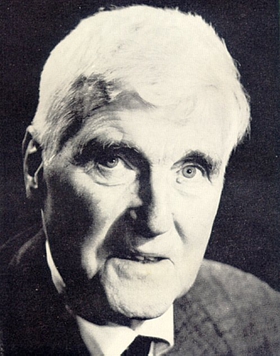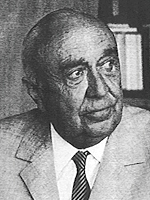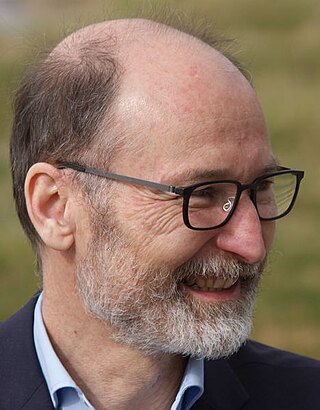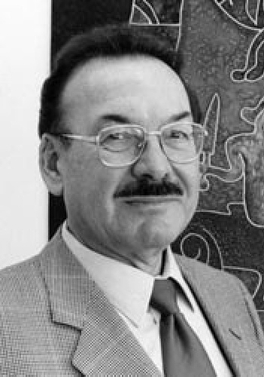
The Lemovii were a Germanic tribe, only once named by Tacitus in the late 1st century. He noted that they lived near the Rugii and Goths and that they had short swords and round shields.

Elseus Sophus Bugge was a Norwegian philologist and linguist. His scholarly work was directed to the study of runic inscriptions and Norse philology. Bugge is best known for his theories and his work on the runic alphabet and the Poetic Edda and Prose Edda.

Wolfdietrich is the eponymous protagonist of the Middle High German heroic epic Wolfdietrich. First written down in strophic form in around 1230 by an anonymous author, it survives in four main versions, widely differing in scope and content, and largely independent of each other.

Jost Trier was a German philologist who was Chair of German Philology at the University of Münster from 1932 to 1961.

The Dębczyn culture is an archeological culture in Pomerania from the third to sixth centuries. It was derived from the neighboring Wielbark culture with influences from the Elbe region. The culture was superseded as the result of the later migrations of West Slavs, in particular of the Pomeranians.
Germanische Altertumskunde Online, formerly called Reallexikon der Germanischen Altertumskunde, is a German encyclopedia of the study of Germanic history and cultures, as well as the cultures that were in close contact with them.

Hoe-farming is a term introduced by Eduard Hahn in 1910 to collectively refer to primitive forms of agriculture, defined by the absence of the plough. Tillage in hoe-farming cultures is done by simple manual tools such as digging sticks or hoes. Hoe-farming is the earliest form of agriculture practiced in the Neolithic Revolution. Early forms of the plough (ard) were introduced throughout the Near East and Europe by the 5th to 4th millennium BC. The invention spread throughout Greater Persia and parts of Central Asia, reaching East Asia in the 2nd millennium BC.

After the glaciers of the Ice Age in the Early Stone Age withdrew from the area, which since about 1000 AD is called Pomerania, in what are now northern Germany and Poland, they left a tundra. First humans appeared, hunting reindeer in the summer. A climate change in 8000 BC allowed hunters and foragers of the Ertebølle-Ellerbek culture to continuously inhabit the area. These people became influenced by farmers of the Linear Pottery culture who settled in southern Pomerania. The hunters of the Ertebølle-Ellerbek culture became farmers of the Funnelbeaker culture in 3000 BC. The Havelland culture dominated in the Uckermark from 2500 to 2000 BC. In 2400 BC, the Corded Ware culture reached Pomerania and introduced the domestic horse. Both Linear Pottery and Corded Ware culture have been associated with Indo-Europeans. Except for Western Pomerania, the Funnelbeaker culture was replaced by the Globular Amphora culture a thousand years later.
The Rugini were a tribe in Pomerania. They were only mentioned once, in a list of yet to be converted tribes drawn up by the English monk Bede in his Historia ecclesiastica of the early 8th century:
Sunt autem Fresones, Rugini, Danai, Hunni, Antiqui Saxones, Boructuari; sunt alii perplures hisdem in partibus populi paganis adhuc ritibus servientis.

Gustav Neckel was a German philologist who specialized in Germanic studies.

Herbert Jankuhn was a German archaeologist of Prussian Lithuanian heritage who specialized in the archaeology of Germanic peoples. He is best known for his excavations at the Viking Age site of Hedeby, and for his instrumental role in the publishing of the second edition of the Reallexikon der Germanischen Altertumskunde.

Friedrich Maurer was a German philologist who specialized in Germanic studies.

Karl Helm was a German philologist who specialized in Germanic studies
Heiko Steuer is a German archaeologist, notable for his research into social and economic history in early Europe. He serves as co-editor of Germanische Altertumskunde Online.

Sebastian Brather is a German medieval archaeologist and co-editor of Germanische Altertumskunde Online.

Heinrich Beck was a German philologist who specialized in Germanic studies. A Professor of Ancient German and Nordic Studies at Saarland University and later the University of Bonn, Beck was a co-editor of the second edition of Reallexikon der Germanischen Altertumskunde and one of the world's leading experts on early Germanic culture.

Dieter Geuenich is a German historian who specializes in the history of Germanic peoples.

Franz Rolf Schröder, often referred to as F. R. Schröder, was a German philologist who was Professor and Chair of German Philology at the University of Würzburg. He specialized in the study German and early Germanic literature, and Germanic and Indo-European religion. He was for many decades editor of the Germanisch-Romanische Monatsschrift.

Klaus Düwel was a German philologist who specialized in Germanic studies. A professor at the University of Göttingen, he was recognized as one of the world's leading experts on Germanic Antiquity.

Hans-Peter Naumann was a German philologist who specialized in Germanic studies.
This page is based on this
Wikipedia article Text is available under the
CC BY-SA 4.0 license; additional terms may apply.
Images, videos and audio are available under their respective licenses.
















